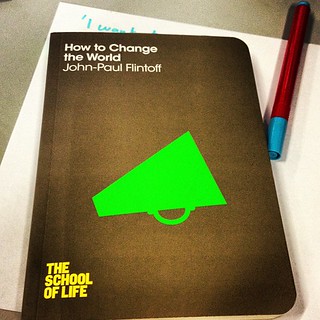I want to research how being more public and open about the subjects that you wish to research affects that research, does it make for a richer outcome? Does it mean that you start competing with others to get your results out sooner once you know that you and twenty others are working on similar topics? Or do you collaborate, maybe publish more, your own work plus work written together?
I sat down and hit the paralysis that I wrote about before, I want to change the world in these ways and right now I have no idea how to take the next step. Which idea is worth spending time on? which one not?
Of course, rather than just pick one work out the plan for it, then if it failed quickly move onto the next I decided to create another idea to address the problem.
researchAgenda is a simple site, simple because part of it is really me practicing my coding again after too many years just managing projects.
Using twitter, you sign in, and create a simple post, a title and a small block of text. Describe quickly what you are thinking of researching.
This can then be tweeted to your followers, who can, if they are interested visit the site, give you a positive vote if you think the idea is worth looking at, maybe leave a comment or maybe they know a reference you should be aware of, a paper on the web, or in a journal or another project by someone.
Each idea has its own view, so you can see all the comments, the suggested references and if it was your idea, you can press a button to start the project. What does this do? It clones a standard, default project in GitHub, creates a set of folders for data, documentation, references etc and a readme and contributor list that is based on the people who have added comments and references to your idea on researchAgenda.
Think of it as similar to HelpMeWrite for research.
At the moment there is nothing about the institution, nothing about how the project is reviewed or funded, or even a necessity to document what the outcome would be. It is currently just a space to write down the fact that you are interested in investigating further X. Maybe after feedback you get to refine what it is, maybe its a short project, you are going to spend a week just using a new technology and your outcome will be a blog post on what you found, good learning references etc.
Maybe though the outcome is more going to be more substantial. Can you take the input and form it into a proposal to go before one of the research councils, are you attached to an Institution that can manage the funding from such?
Of course, longer term this is, in itself a stake in the ground about creating a more public discourse about research, knowledge acquisition, generation and dissemination. Can you shape a research proposal an perform the primary work without being attached to a usual Institution? How are the outcomes of your work reviewed and published and how can the current models of academia bend to accept such work? Can they?
This does also tie into my previous posts, one on how to affect change, having a simple way to put a message ‘I want to do X’ that you can point to and ask for feedback is nice. Yes you can write a blogpost, or a facebook post or any number of other places but there is also something about the idea of a communal space, this is creating an simple ‘UnAcademia’ (ok, I’m not sure that is really the term to use, I could be quickly using up my valid excuses to use the Un- prefix). The other the Arts UnCouncil on alternative funding for arts and cultural activity.
I think as this stands, it would work for ideas around the arts and humanities, as well as for people who already operate outside the usual academic institutions. They can use the interest in a proposed research problem to help support trying to get funding for doing the work, for example. Would the idea work in other areas of research? Would bioscientists use such a platform to start staking out what they were interested in and maybe finding interest / collaborators outside their usual field/lab of interest?
There is nothing to say that you have to use the GitHub project, or you have to keep it open, maybe it can integrate into other online tools, maybe you can use this to help start parts of a research project that involve crowd sourcing of participation for microtasks?
researchAgenda will launch shortly in alpha, it is just a sketch in code but if you are interested in trying it out drop me a line and I’ll make sure you know when its live.
